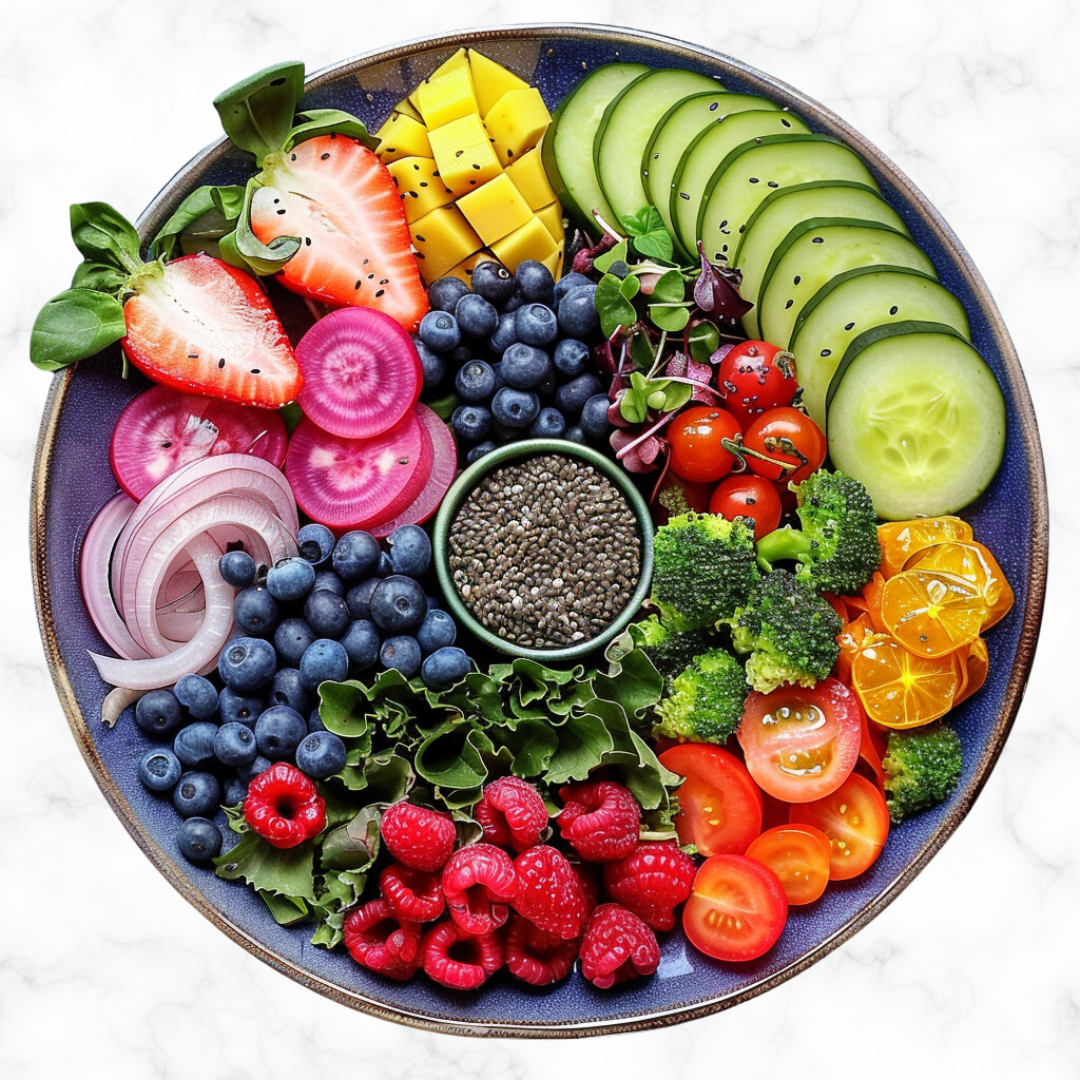
Maintaining kidney health is a crucial aspect of leading a healthy life. A well-balanced diet rich in fruits, vegetables, and whole grains ensures optimal kidney function. Conversely, eliminating processed foods, animal-based protein, and unhealthy fats from your diet can help slow the progression of kidney disease. Understanding which foods promote kidney health empowers you to make informed dietary choices.
Adopt a whole-food, plant-based way of eating to promote kidney health. A whole-food plant-based diet (WFPB) centers around consuming whole, unprocessed plant foods such as fruits, vegetables, whole grains, legumes, and seeds. A whole-food plant-based (WFPB) diet is based on the fact that these foods offer the healthiest and most nutrient-dense nutrition sources. This dietary approach has many health benefits, including improved heart health, weight loss, and reduced risk of chronic diseases. Additionally, it aligns with environmental sustainability goals by reducing the consumption of resource-intensive animal products in favor of plant-based alternatives.
Plant-Based Diets Can Enhance Kidney Function
Plant-based diets have gained popularity recently due to their numerous health advantages, particularly regarding kidney health. A diet rich in fruits, vegetables, legumes, and whole grains can reduce the risk of disease progression and maintain kidney function. Research demonstrates that plant-based diets can enhance kidney function by reducing inflammation, improving blood pressure control, and promoting weight loss. Additionally, these diets are associated with lower cholesterol and triglycerides, offering protection against heart disease. Ensuring variety by including a wide range of plant foods like fruits, vegetables, legumes, nuts, and seeds is essential for optimizing kidney health.
Switching to a diet emphasizing fruits, vegetables, and grains over animal-based products can positively impact your overall health. Studies indicate that this dietary shift can not only help prevent but also slow the progression of chronic diseases, including chronic kidney disease, Type 2 diabetes, high blood pressure, and heart disease. Opting for more plant-based foods is a straightforward way to lower your risk of these conditions while enhancing your general well-being.

High-protein diets, especially those heavy in animal-based protein, can place an added burden on the kidneys. The kidneys must work harder to process waste products like urea and creatinine from protein metabolism. This extra load can be concerning for individuals with existing kidney problems.
Animal protein consumption increases the acidity in the bloodstream, which can harm the kidneys, leading to acidosis. Acidosis occurs when the body’s pH levels become overly acidic, potentially resulting in severe health complications if not addressed promptly. Those who regularly consume animal protein should be aware of this risk and take steps to reduce their intake to maintain healthy pH levels in their bodies.
Processed foods are a significant contributor to kidney disease, a severe and potentially life-threatening condition. Various factors, including high blood pressure, diabetes, and obesity, can trigger kidney disease. However, the consumption of processed foods has been linked to a higher incidence of kidney disease due to their elevated sodium levels and other additives. Furthermore, processed foods often contain excessive amounts of salt and sugar, increasing the risk of high blood pressure, diabetes, and obesity. Avoiding processed foods is vital to reduce the risk of further kidney damage.
Plant-based and animal-based diets are both popular dietary choices, but research suggests that a plant-based diet may offer more benefits for individuals with kidney disease. Studies have revealed that plant-based diets can lower inflammation and oxidative stress in the body, reducing the risk of kidney disease progression. Furthermore, plant-based diets usually contain more fiber, antioxidants, and phytonutrients than animal-based diets, protecting chronic conditions such as kidney disease.
Some things need to be clarified about plant-based diets and their impact on kidney health. Contrary to popular belief, a well-balanced plant-based diet can enhance kidney health. These diets are low in sodium, saturated fat, and cholesterol, all contributing factors to the development of kidney disease. Furthermore, they offer ample vitamins, minerals, and antioxidants to help slow the progression of existing kidney diseases.
Maintaining A Balanced Diet Is Essential For Good Health.
Monitoring your food intake is crucial for satisfying your daily nutritional needs. Tracking your daily calorie and protein intake helps you stay on top of your nutritional needs and maintain a healthy lifestyle.
For individuals with kidney disease, monitoring daily food consumption is especially important. This practice ensures you obtain essential nutrients while avoiding foods that could harm your kidneys. By keeping tabs on your intake, you can prevent exceeding the recommended amounts for your condition and gain insights into how different foods affect your body, allowing you to make necessary adjustments. Monitoring calorie and protein intake is crucial in managing kidney disease and ensuring a healthy lifestyle.



